Presentations
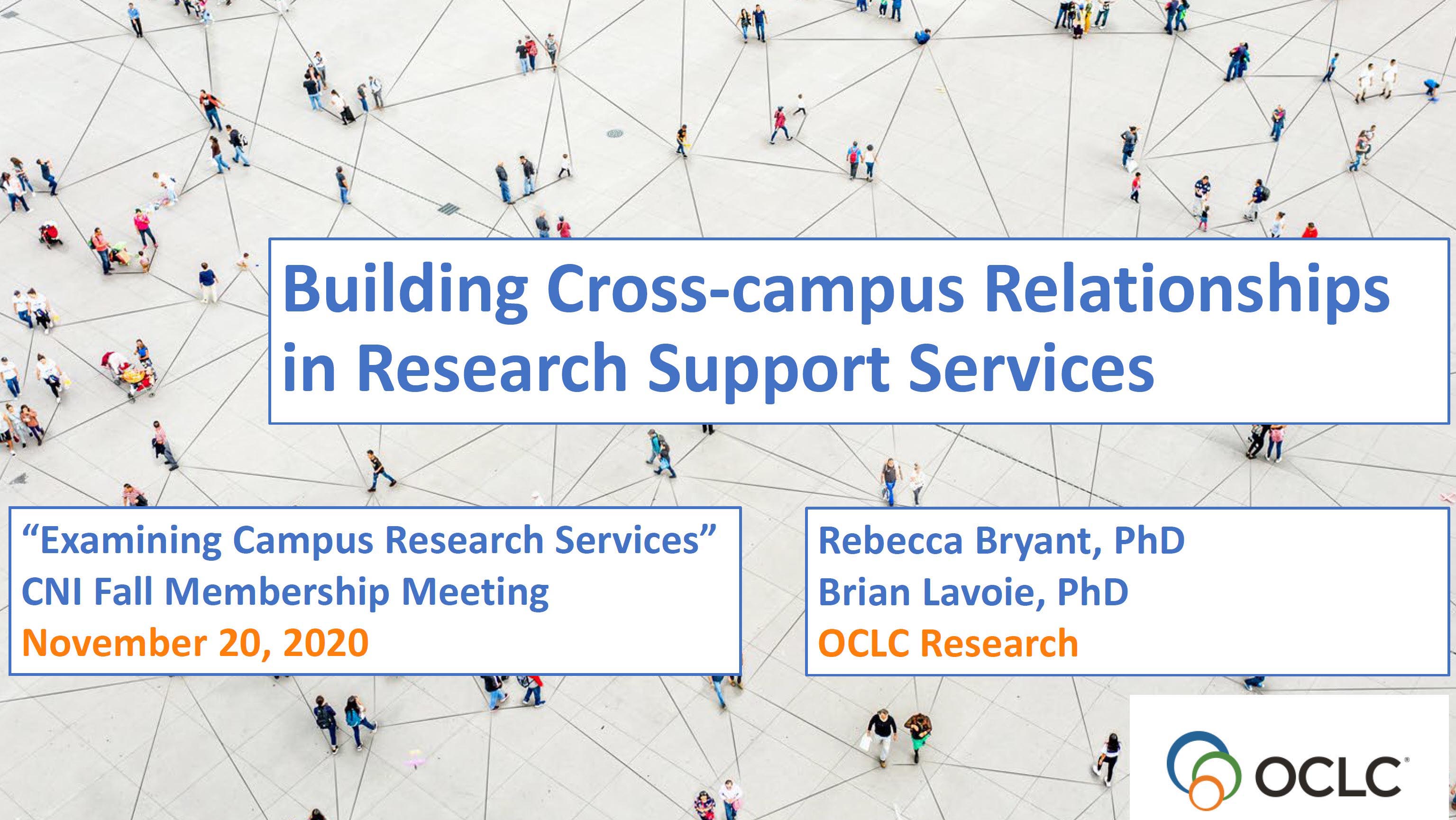
Building Cross-campus Relationships in Research Support Services
virtual
This presentation provides an overview of findings from the recent OCLC Research report “Social Interoperability in Research Support: Cross-Campus Partnerships and the University Research Enterprise.”
Topics: Research Data Management, Research Support
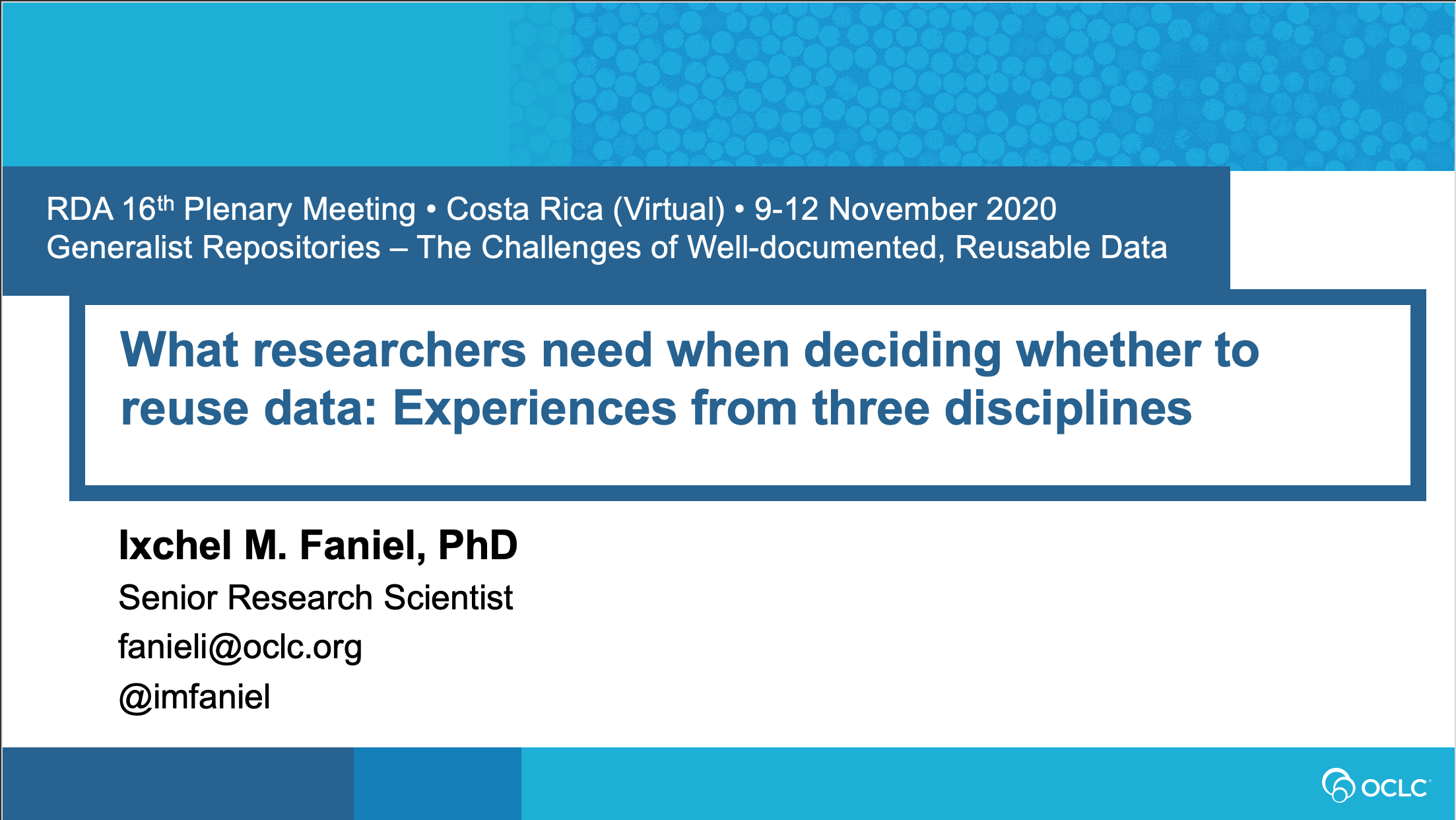
What researchers need when deciding whether to reuse data: Experiences from three disciplines
virtual
When researchers are deciding whether to reuse data, they need information about data’s context of production from a variety of sources such that data’s quality can be evaluated. This panel presentation compares the different types of context, sources, and data quality attributes quantitative social scientists, zoologists, and archaeologists mentioned needing during interviews and observations about their data reuse.
Topics: Research Data Management, User Research
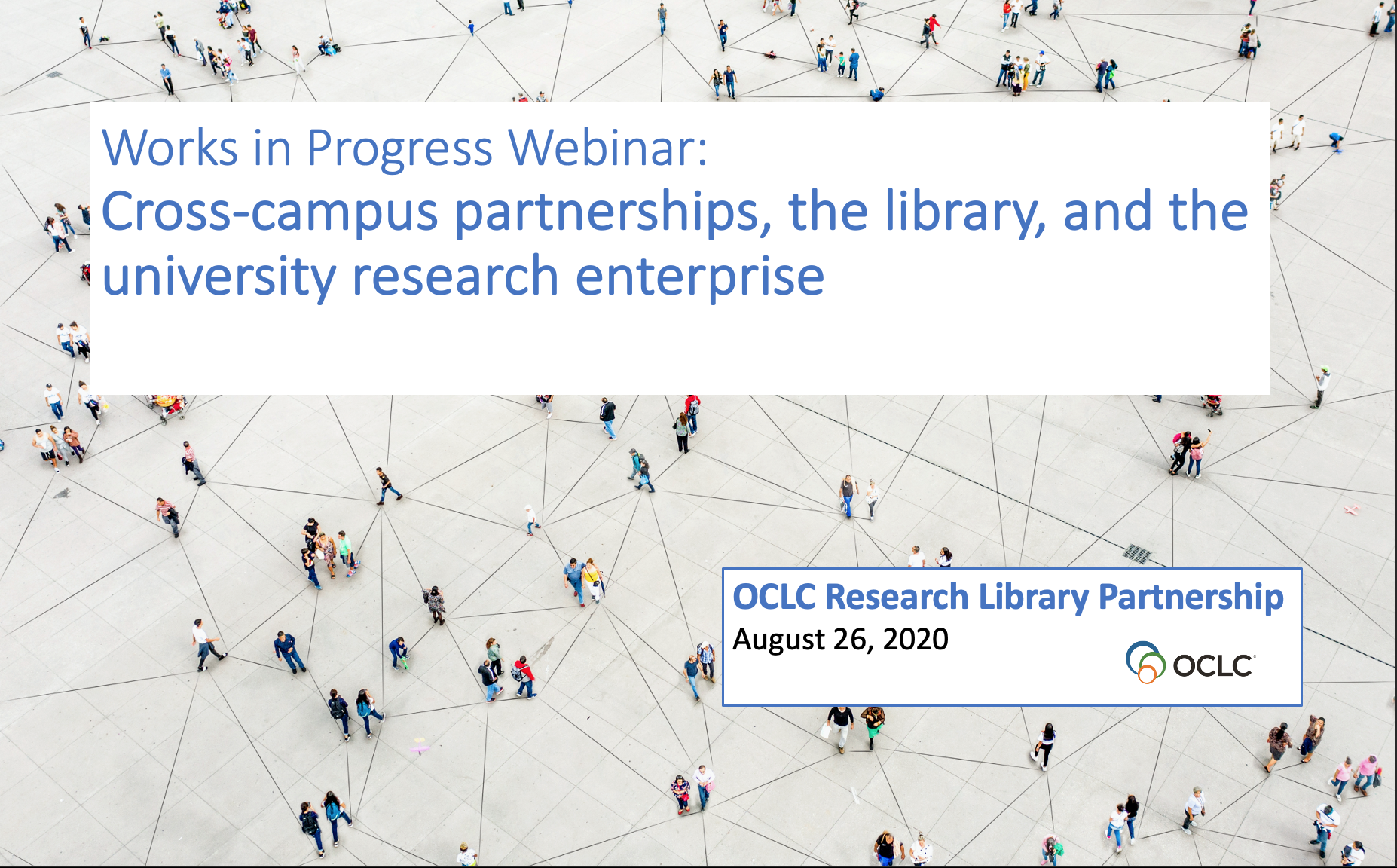
Cross-campus partnerships, the library, and the university research enterprise
This webinar is the first in a series offered by the OCLC Research Library Partnership focusing on cross-campus collaboration in research support.
Topics: Research Information Management, Role of Libraries in Data Curation, Institutional Organization, Research Support, Research Data Management, Works in Progress
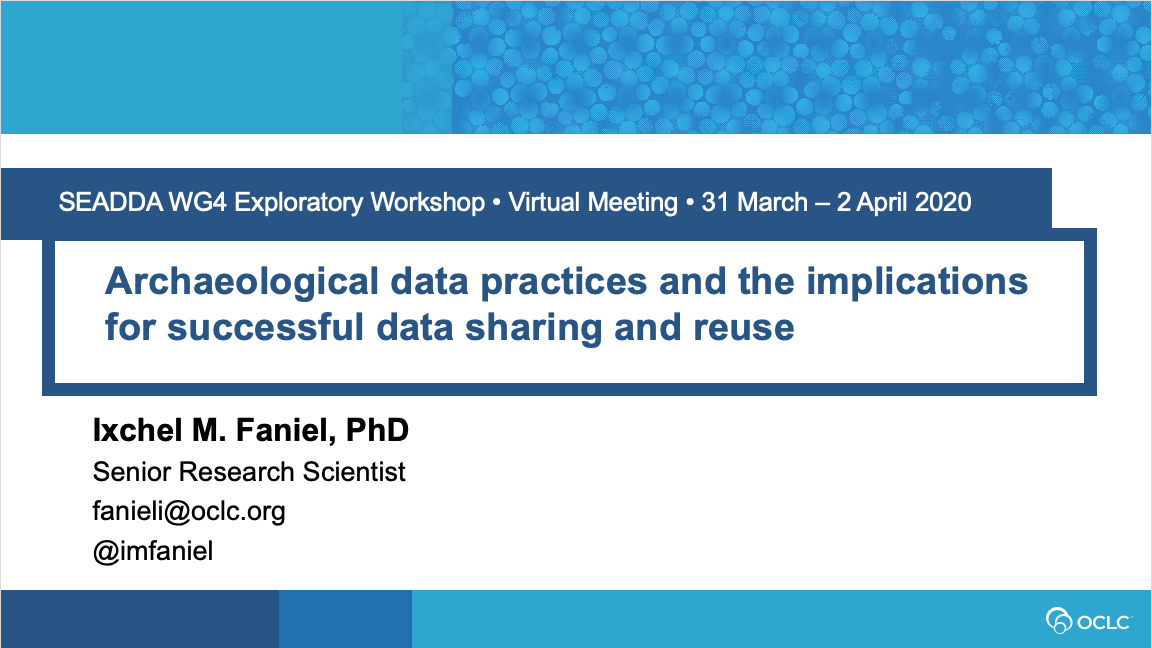
Archaeological data practices and the implications for successful data sharing and reuse
virtual
In this keynote presentation, Ixchel M. Faniel discusses findings from several studies examining archaeological data practices and needs and the implications for successful data sharing and reuse.
Keynote recording available from SEADDA.
Topics: User Research, Research Data Management, SLO-Data
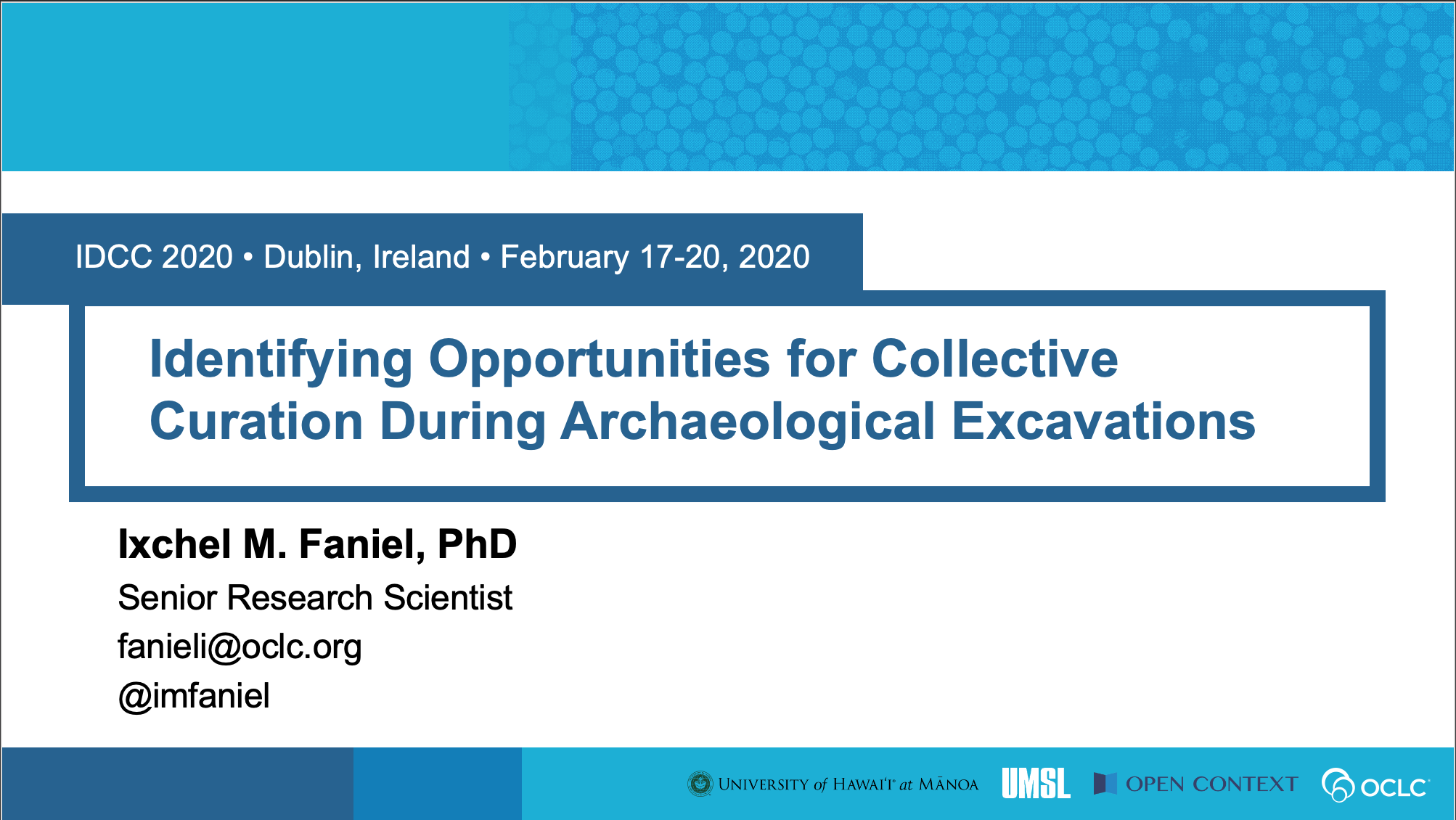
Identifying Opportunities for Collective Curation During Archaeological Excavations
Dublin, Ireland
Archaeological excavations are comprised of interdisciplinary teams that create, manage, and share data as they unearth and analyze material culture. These team-based settings are ripe for collective curation, particularly among the excavation teams responsible for unearthing the materials and the specialists responsible for analysing them. Yet, findings from a study of four excavation sites show specialist data tend to remain unlinked and decontextualized from excavation data. This presentation highlights findings from the study, opportunities identified for collective curation, and responses from the four excavation projects.
Topics: Research Data Management, User Research, SLO-Data